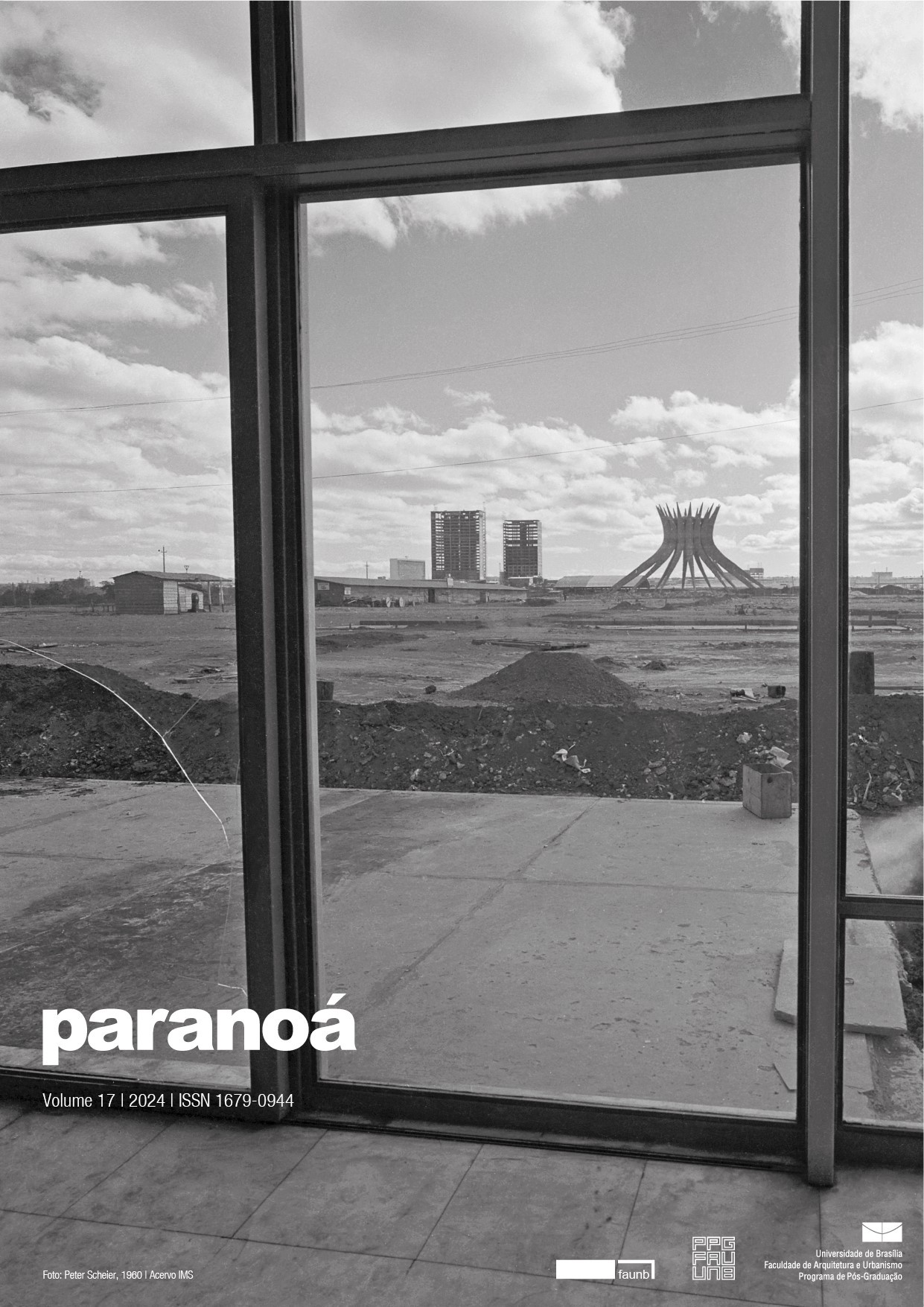Evaluation and enhancement of the hot water system in university housing
an intervention example
DOI:
https://doi.org/10.18830/1679-09442024v17e53526Keywords:
Water Consumption, Solar water heating, Student Housing, Monitoring, Rational UseAbstract
The use of solar water heating systems can bring savings, reducing environmental impacts compared to conventional energy sources. The main objective of the study was to identify pathologies in the hot water plumbing system of the Cerrado University Housing (MUC) in Catalão-GO, and correct them through interventions, evaluating efficiency before and after. For fourteen months, data on cold water, hot water, and energy consumption of the apartments and the number of residents in the building were collected. During the intervention, CPVC piping was replaced with PEX tubes, changes were made to the connections of the solar panels, a hydraulic pump and valves were introduced to improve recirculation, and the electric resistance was replaced. After the modifications, there was a trend of reduction in total hot water consumption and the consumption index (CI). The average shower heating time was reduced from 2 minutes to 20 seconds. Additionally, the average hot water consumption per resident decreased by 23.47%. Energy consumption, which had a trend of increase, stabilized after the modifications, indicating an improvement in the energy efficiency of the building. Thus, the interventions contributed to increasing the efficiency of the facilities.
Downloads
References
ASSOCIAÇÃO BRASILEIRA DE ENGENHARIA SANITÁRIA E AMBIENTAL – ABES. Panorama da Água no Brasil. Disponível em: http://abes-dn.org.br/wp-content/uploads/2018/04/Panorama-da-Agua-noBrasil-ABES.pdf. Acesso em: 22 de abril de 2023.
ASSOCIAÇÃO BRASILEIRA DE NORMAS TÉCNICAS ABNT NBR 5626: Sistemas prediais de água fria e água quente - Projeto, execução, operação e manutenção. Rio de Janeiro. 2020.
ASSOCIAÇÃO BRASILEIRA DE NORMAS TÉCNICAS. NBR 15569: Sistema de aquecimento solar de água em circuito direto — Requisitos de projeto e instalação. Rio de Janeiro: ABNT, 2020.
ALTOÉ, L.; OLIVEIRA FILHO, D.; CARLO, J. C. Análise energética de sistemas solares térmicos para diferentes demandas de água em uma residência unifamiliar. Ambiente Construído, [S. l.], v. 12, n. 3, p. 75–87, 2012.
Carretero-Ayuso, M. J.; Moreno-Cansado, A.; García-Sanz-Calcedo, J. Occurrence of faults in water installations of residential buildings: an analysis based on user complaints. J. Build. Eng., v. 27, 2020.
COMGAS. Sistema de Aquecimento de Água para Edifícios através da associação Energia Solar e Gás Natural – Manual Técnico para Projeto e Construção de Sistemas de Aquecimento Solar & Gás Natural, 2011. Disponível em: <https://labeee.ufsc.br/pt-br/downloads>. Acesso em Dezembro 2023.
ELETROBRAS - Centrais Elétricas Brasileiras S.A. Pesquisa de Posse de Equipamentos e Hábitos de Uso: ano-base 2019, classe residencial. Relatório Brasil. Rio de Janeiro: ELETROBRAS/PROCEL, 2019.
OLIVEIRA, L. H. Metodologia para implantação de programa de uso racional da água em edifícios. Tese (Doutorado em Engenharia da Construção Civil) – Escola Politécnica da Universidade de São Paulo, São Paulo, 1999.
PROCOBRE. Qualidade em Instalações de Aquecimento Solar, São Paulo, Dezembro 2009. Disponível em: <https://labeee.ufsc.br/pt-br/downloads/manuais>. Acesso em: 22 de Janeiro 2024.
Singh, S., Anand, A., Shukla, A., & Sharma, A. K. Environmental, technical and financial feasibility study of domestic solar water heating system in India. Sustainable Energy Technologies and Assessments, 43, 2021.
T Zhang, Q Z Zhu, W He, G Pei, J Ji, Annual performance comparison between solar water heating system and solar photovoltaic/thermal system—a case study in Shanghai city, International Journal of Low-Carbon Technologies, Volume 12, Issue 4, 2017.
YAMADA, Marco Antonio Furtado; OLIVEIRA, Lúcia Helena de. Comissionamento de sistemas prediais de água quente –Requisitos de projeto do proprietário. In: ENCONTRO NACIONAL DE TECNOLOGIA DO AMBIENTE CONSTRUÍDO, 18., 2020, Porto Alegre. Anais... Porto Alegre: ANTAC, 2020.
Downloads
Published
How to Cite
Issue
Section
License
Copyright (c) 2024 Paranoá

This work is licensed under a Creative Commons Attribution 4.0 International License.
Autores que publicam nesta revista concordam com os seguintes termos:
- Autores mantém os direitos autorais e concedem à revista o direito de primeira publicação, com o trabalho simultaneamente licenciado sob a Licença Creative Commons Attribution que permite o compartilhamento do trabalho com reconhecimento da autoria e publicação inicial nesta revista. http://creativecommons.org/licenses/by/4.0
- Autores têm autorização para assumir contratos adicionais separadamente, para distribuição não-exclusiva da versão do trabalho publicada nesta revista (ex.: publicar em repositório institucional ou como capítulo de livro), com reconhecimento de autoria e publicação inicial nesta revista.
- Autores têm permissão e são estimulados a publicar e distribuir seu trabalho online (ex.: em repositórios institucionais ou na sua página pessoal) a qualquer ponto antes ou durante o processo editorial, já que isso pode gerar alterações produtivas, bem como aumentar o impacto e a citação do trabalho publicado (Veja O Efeito do Acesso Livre).















